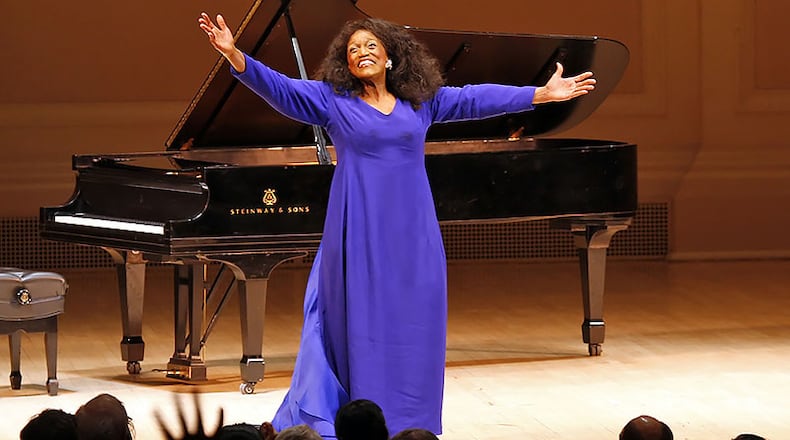Jessye Norman came into my life in the most unexpected way when I was about five years old. Because of her one-of-a-kind voice, I fell in love with opera. Now that voice has been stilled, but it has not loosened its hold on me. The way she entered my life reads like a fairy tale.
One day after cleaning out her parlor, Mrs. Peabody, the woman my grandmother worked for in Montgomery, Alabama, asked Mama, “Mamie, do y’all have a record player? If you do, take these records home to give your little boy something to listen to.”
Mama lugged her 10 records home in a wooden vegetable crate, some still unopened. It was summer, and I took my time uncrating my present. I examined each record one by one until I found two or three whose covers I really liked. Daddy, as curious as I, brought the record player out to the back porch and plugged it in. “What are you going to play, son?” he asked, reminding me how much he also liked music. I turned the volume up as high as it would go, and the three of us waited.
I didn’t know that what I had decided to play would forever change my life. Out came the most transcendental and wondrously strange sound. It was the voice of the soprano Jessye Norman singing Richard Strauss’s “Four Last Songs.”
I’d never heard such a voice — it enveloped me. The dogs and chickens seemed to hush, and the clanking of tractors plowing faded to the background. Even my normally voluble grandmother said nothing. The look on my face must have stopped her. I was transfixed. Norman’s voice was so refreshingly different and new to our surroundings that in minutes my friends childhood friends Bimp, Boo-Boo, and Rod raced across the yard, landing with a thump on the porch. “What you listening to? What is it?”
They were not ridiculing me or scoffing at the music but expressing wonder. How could the human voice create such a sound? How could it sway back, turn curves, and climb so high? I played that record at full volume every day for the whole summer, and no one complained.
» MORE: Augusta to honor Jessye Norman with her own street
Eventually I played all of Mrs. Peabody’s records, but the Norman album touched me most. Not until years later did I learn that she was black like me, grew up in Augusta, Georgia, and got her start singing in the church choir. After many years of listening to that album, I truly appreciate what enormous range she possessed, what impeccable control and phrasing she exercised in her singing. But sitting on the back porch with my grandparents, I never could have imagined that one day we would become friends and that I would get to tell her the story of how I came to love opera through her.
Eric Motley is executive vice president of the Aspen Institute and author of “Madison Park: A Place of Hope.”(from which this tribute is excerpted).
About the Author
Keep Reading
The Latest
Featured



